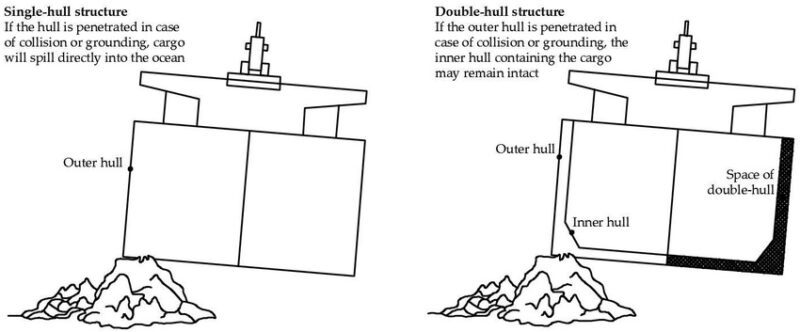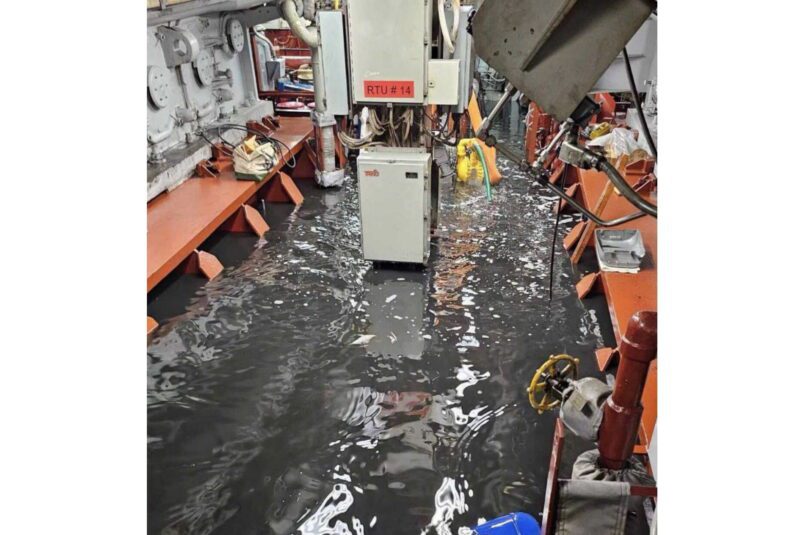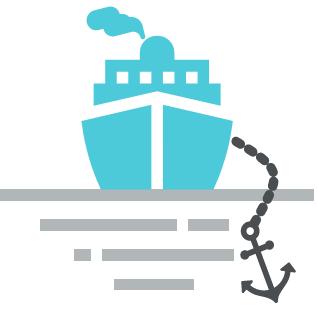USNS Big Horn Grounding Highlights Navy’s Critical Oiler Shortage and Maritime Logistics Challenges
US Navy oiler USNS Big Horn ran aground and partially flooded off the coast of Oman, impacting the Abraham Lincoln Carrier Strike Group’s fuel supply. The incident was first highlighted by maritime historian Sal Mercogliano. A leaked video revealed damage to the ship’s rudder post and flooding in a mechanical area. Although the exact location of the ship remains unknown due to the absence of AIS signals, a Navy source confirmed it is anchored near Oman for damage assessment.
Fortunately, there have been no injuries or environmental issues reported. The 33-year-old USNS Big Horn is one of the older single-hull Kaiser-class oilers. A Navy official stated that the vessel sustained damage while operating in the US 5th Fleet area on September 23, and all crew members are safe as the situation is being assessed.

Kaiser-class oilers have been vital to the Navy’s underway replenishment capabilities since their introduction in the 1980s. However, as single-hull tankers, they are considered environmentally vulnerable, especially after the Exxon Valdez oil spill led to regulations mandating double-hull designs for commercial tankers. The newer John Lewis-class vessels are designed to replace the aging Kaiser-class with improved safety features and enhanced fuel capacity.

Complicating matters, USNS Big Horn is the only oiler currently stationed in the Middle East. The Navy is reportedly seeking a commercial tanker to provide jet fuel to the USS Abraham Lincoln. If a commercial tanker is used, it will require significant modifications to handle military refueling operations, including the installation of a Consolidated Cargo Handling and Fueling (CONSOL) system, which involves specialized equipment and requires trained personnel to oversee operations.
Commercial tankers are typically slower than Navy oilers, which could increase vulnerability during refueling operations. Additionally, the Navy is grappling with a shortage of oilers and crew due to recruitment challenges, which has led to the potential layup of several replenishment ships. Despite launching new John Lewis-class oilers, difficulties in deploying these vessels persist, with the lead ship, USNS John Lewis, currently inactive due to repair delays.
The grounding of USNS Big Horn highlights the broader tanker crisis faced by the US military. The Department of Defense anticipates needing over one hundred tankers for potential conflicts, yet currently has access to fewer than ten. This shortage poses a critical risk to military operations, particularly as advanced naval capabilities still depend on aviation fuel.
The situation worsened with the closure of the Navy’s Pacific fuel depot, Red Hill, due to maintenance failures that contaminated local water supplies in Hawaii. Immediate action is necessary to expand the U.S.-flagged fleet capable of supporting military operations. Potential solutions include enhancing the Tanker Security Program and pre-positioning fuel-laden tankers.
The current crisis, combined with a shortage of US Merchant Marine crews, presents significant challenges for the Navy. Secretary of the Navy Carlos Del Toro has advocated for a new approach to maritime strategy, while Congress is working on legislation to address these issues. However, the implementation of these solutions will take time, and the lack of resources in federal agencies complicates the situation.
As the Navy navigates these challenges, the increased operational demands on Merchant Mariners and the logistics system could lead to more incidents similar to the USNS Big Horn grounding, compounded by a general shortage of essential support vessels for repairs and recovery operations.

